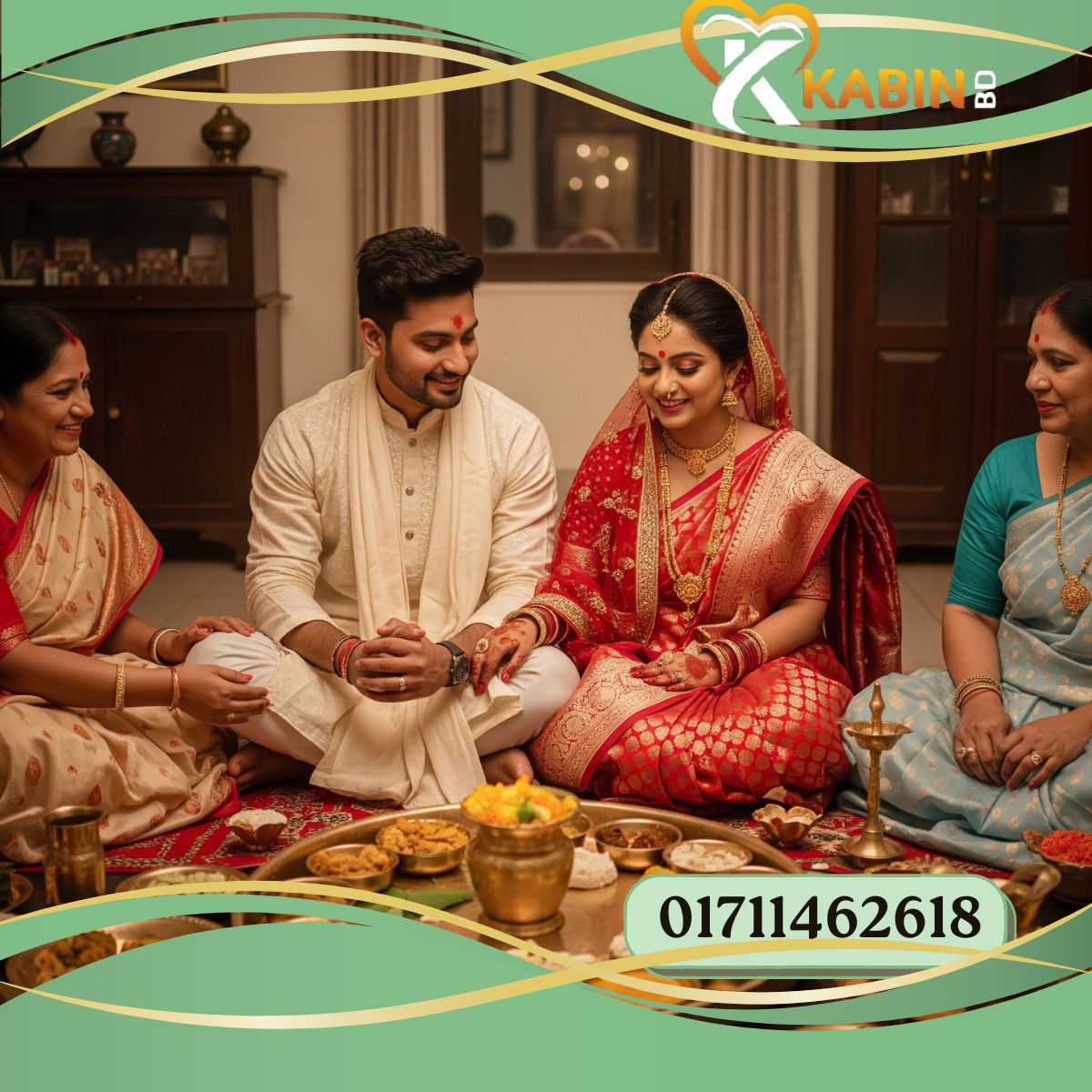Why Do Most Marriages Arranged by Family Fall Apart Silently?

Why Do Most Marriages Arranged by Family Fall Apart Silently? Arranged marriages have long been a cultural norm in many parts of the world, particularly in South Asia, the Middle East, and Africa. Rooted in tradition, these marriages are often initiated and managed by families, with the belief that experience, values, and family interests can guide a more stable union. Yet, behind the facade of stability and family honor, many of these marriages unravel quietly—without dramatic divorces or overt conflict, but through silent suffering, emotional disconnect, and unfulfilled lives.
Why do so many arranged marriages fall apart not in courts but behind closed doors? Why do so many couples continue living under the same roof yet feel completely alienated from each other? This article explores the deeper emotional, cultural, psychological, and social reasons behind the silent breakdown of family-arranged marriages.
Why Do Most Marriages Arranged by Family Fall Apart Silently?
- The Myth of “Parents Know Best”
In many cultures, parents and extended family believe they can choose a better life partner for their children based on practical factors: caste, religion, financial status, family reputation, education, etc. While these criteria may have served as safeguards historically, they often overlook emotional intelligence, shared goals, personality traits, and communication styles.
What parents see as stability may feel like confinement to the couple involved. The assumption that emotional connection can “grow over time” often leads to disappointment, especially when there is no groundwork for genuine affection or mutual respect.
- Lack of Emotional Compatibility
Unlike love marriages, where the bond is often formed over months or years of interaction, arranged marriages usually begin with minimal emotional intimacy. While some couples grow into companionship, many do not. They find themselves mismatched in values, lifestyle expectations, temperament, or emotional availability.
When there is no emotional compatibility, even small disagreements feel like major challenges. Over time, many spouses retreat into emotional silence rather than try to fix a problem they never chose in the first place.
- The Silence of Duty Over Desire
One of the most common reasons arranged marriages silently fail is the ingrained culture of duty—the idea that one must endure unhappiness for the sake of family, community, or social image.
The individual is taught to suppress personal dissatisfaction and put the family’s honor first. Spouses stop expecting happiness and begin accepting a mundane, mechanical relationship where they perform their roles without any emotional connection.
This creates an emotionally sterile environment—two people going through the motions of marriage without joy or purpose.
- The Fear of Social Stigma
In cultures where divorce is stigmatized, particularly for women, silent suffering becomes the preferred option. Even in abusive or toxic marriages, many choose to “adjust” rather than face the shame associated with marital breakdown.
The idea of “what will people say?” prevents couples from addressing real issues or separating peacefully. As a result, many couples continue living together not because they want to, but because they fear the consequences of ending it.
- Suppressed Individual Choices
In arranged marriages, the individuals often have little to no say in selecting their partner. While families may claim to offer “freedom to choose,” in reality, the choices are filtered through caste, religion, wealth, and family networks.
This suppression of personal agency leads to long-term resentment. The person may comply out of respect or obligation, but the heart is never in the marriage. Over time, this inner conflict manifests as emotional withdrawal, leading to silent collapse.
- Communication Gaps and Emotional Void
Many arranged marriages start with superficial communication. Since the partners hardly know each other before marriage, and family expectations dominate the initial phase, deep conversations about dreams, fears, values, or conflicts are often postponed—or never happen.
Without communication, misunderstandings multiply. Small irritations turn into larger emotional gaps. Instead of discussing the problem, couples in arranged marriages often ignore it, leading to emotional detachment.
- Gender Roles and Power Imbalance
Traditional arranged marriages are often built on rigid gender roles: the man as the provider, the woman as the caregiver. This structure discourages mutual support or equality.
In such marriages, women are expected to sacrifice their career goals, personal preferences, and autonomy to fit into the mold of the “ideal wife.” Meanwhile, men may be pressured to dominate or lead without expressing vulnerability.
The imbalance leads to frustration on both sides—men feeling emotionally isolated, and women feeling unheard and undervalued. But instead of confronting these issues, couples continue silently, each nursing their private discontent.
- Neglect of Mental Health and Emotional Intelligence
Emotional well-being is rarely discussed in the context of arranged marriages. Issues like depression, anxiety, emotional abuse, or trauma are brushed under the carpet.
If one partner is emotionally unwell or abusive, the family may still push the other to “be patient” or “compromise.” The lack of emotional awareness and mental health literacy creates a toxic environment where both suffer, but neither speaks up.
- No Exit Plan – Only Endurance
Unlike modern relationships, where people may choose to walk away when a relationship fails, arranged marriages come with no exit plan. Divorce is not an option culturally or financially for many, especially women.
So, instead of seeking solutions or separation, people choose endurance. Years go by in silence. The couple becomes strangers. They may appear “married” to the outside world but are actually coexisting as two parallel lives.
- Family Pressure to “Adjust” No Matter What
Families often guilt-trip couples into staying together: “You can’t leave because we’ll lose face.” or “Your younger sister won’t get married if you separate.” or “Think of the children.”
These cultural weapons prevent individuals from taking action even when they know the marriage is harming them. And so, they stay. And suffer. Quietly.
- Children as Emotional Hostages
Once children are born, the emotional stakes get even higher. Many couples who are incompatible remain together only for the sake of their kids.
While this may seem noble, the children often grow up in a house filled with tension, cold silence, or passive aggression. They absorb these unspoken battles and may struggle with relationships themselves later in life.
- When Love Is Not a Priority
In traditional arranged marriages, love is not the foundation—it’s the byproduct people hope will emerge. But many never get there. They remain stuck in polite conversations, daily routines, and distant interactions.
When love is not nurtured, the marriage becomes a contractual arrangement. Sex may become mechanical or absent. Intimacy dies. And yet, no one talks about it.
- The Loneliness Within the Institution
There is nothing lonelier than feeling alone in a marriage. And many people in arranged marriages experience this exact loneliness—of sleeping next to someone every night who doesn’t truly see them.
They can’t confide in friends or family because they fear judgment. They can’t leave. So they live a dual life—one for the world, and one inside their heart.
This is the silent heartbreak that often defines failed arranged marriages.
- Cultural Disconnect in the Modern World
As the world changes, young people are increasingly exposed to ideas of emotional fulfillment, mental health, and mutual respect in relationships. But arranged marriages, especially in traditional settings, often lag behind in adapting to these changes.
This disconnect leads to frustration. One partner may want emotional connection and openness, while the other remains emotionally unavailable due to cultural conditioning.
Without a shared cultural language of modern love, the marriage becomes a mismatch of desires and expectations.
- The Need for a New Arranged Marriage Model
The silent breakdown of arranged marriages is not always due to malice or abuse. Often, it is the result of emotional neglect, cultural rigidity, and the absence of open communication.
To prevent this quiet tragedy, a new model of arranged marriage is needed—one that blends family values with individual choice, emotional compatibility, and mutual respect.
Why Do Most Marriages Arranged by Family Fall Apart Silently?

Here’s what that could look like:
- Pre-marital counseling as a norm.
- Emotional compatibility tests in addition to background checks.
- Longer courtship periods for partners to truly know each other.
- Education for parents on how modern relationships work.
- Destigmatization of separation when a marriage is clearly harmful.
- Freedom to choose or reject proposals without guilt or manipulation.
- Mental health awareness as part of the marriage conversation.
Only then can arranged marriages truly evolve—from being silent institutions of endurance to meaningful partnerships of love, respect, and fulfillment.
- The Role of Social Conditioning: Raised to Endure, Not to Express
From a young age, many individuals raised in cultures that support arranged marriages are conditioned to avoid conflict, suppress personal desires, and view marriage as a duty rather than a partnership. Especially for women, the concept of “adjusting” is instilled deeply.
This social conditioning leads to a generation of spouses who don’t know how to communicate discomfort, challenge injustice, or express emotional needs. They equate silence with maturity and endurance with virtue. As a result, even when the marriage causes pain, they remain quiet, believing that speaking up would mean failure.
Such environments breed passive partners who don’t express dissatisfaction, but also don’t engage in connection. The marriage then becomes a quiet co-existence—devoid of passion, intimacy, or joy.
- Lack of Prior Interaction Before Marriage
One of the biggest differences between love marriages and arranged marriages is the timeline of emotional connection. In many arranged marriages, couples barely spend time together before the wedding. Their interactions are often formal, monitored, or superficial—hardly enough to build trust or connection.
This lack of foundation means that many couples enter marriage as strangers. They are expected to navigate complex emotional, sexual, financial, and familial dynamics without knowing each other’s personalities.
While some couples do grow closer with time, many never manage to bridge the gap. Their personalities might clash. Their values may not align. But because the relationship was formalized before compatibility was assessed, they are stuck in a union they never had the chance to shape meaningfully.
- Romantic Expectations vs. Reality
Globalization, social media, movies, and literature have drastically changed how young people view love and relationships. Even in conservative societies, romantic ideals are now prevalent. Many youths harbor silent dreams of emotional intimacy, shared laughter, romantic gestures, and deep companionship.
But when they enter into arranged marriages that were chosen based on financial or societal criteria—not emotional chemistry—reality hits hard. The romantic expectations are replaced by rigid roles, formal interactions, and routine responsibilities.
This disillusionment becomes hard to express. Often, the partner may not even be aware of the other’s internal longing. And so, silently, expectations die. The relationship becomes more functional than fulfilling, and both partners retreat emotionally while continuing to live under the same roof.
- Pressure to Maintain a Perfect Image
Another reason why arranged marriages often fall apart silently is the intense pressure to maintain a perfect public image. Families involved in arranged marriages usually invest a lot—emotionally, socially, and financially—in the union. They often feel personally responsible for its success.
This turns the couple into a “project” that the family must prove as successful. Any sign of struggle, disappointment, or disconnect becomes a threat to this image. Therefore, both partners are pressured—sometimes explicitly, often subtly—to pretend that everything is fine.
They avoid counseling, they don’t open up to friends, and they certainly don’t bring up the idea of separation. Instead, they smile at social events, share pictures on anniversaries, and perform the rituals of marriage, even as the emotional connection dies inside.
- Financial Dependence and Insecurity
A critical, often overlooked, factor in the silent suffering of arranged marriages is financial dependence—especially for women. In traditional setups, women are often encouraged to quit their jobs post-marriage or not pursue higher education in favor of marital duties.
This creates a power imbalance. If the woman is financially dependent on her husband or in-laws, she has little room to assert herself. Even if the marriage becomes toxic, her survival—along with that of her children—depends on remaining in that household.
So, she stays. She endures. And the marriage continues—not out of love or respect—but out of economic necessity. In such cases, emotional abuse is often ignored or tolerated because leaving is not a viable option.
- When Extended Family Becomes the Third Party
Arranged marriages are not just between two individuals—they are often alliances between two families. In many cases, parents, siblings, in-laws, and even distant relatives play a significant role in the couple’s daily life.
While community involvement can be supportive, it often becomes intrusive. Decisions that should be made by the couple—about finances, living arrangements, children, or career—are influenced or controlled by elders. This creates tension.
When the couple disagrees with the family, they’re seen as rebellious. When they try to assert boundaries, they are labeled disrespectful. The pressure to keep everyone happy leads to frustration and internalized resentment. And instead of discussing the problem, both partners drift into silence—too tired or too afraid to fight anymore.
- Physical Intimacy and Consent Issues
In arranged marriages, sex is often an awkward topic. Many couples barely know each other before they are expected to become physically intimate. This sudden transition can be emotionally jarring.
Sometimes, one partner may not be emotionally ready, but feels obligated to perform due to cultural expectations. In other cases, the lack of emotional bonding leads to an absence of physical desire. But instead of addressing this mismatch through conversation or therapy, many couples choose to avoid intimacy altogether.
Over time, the absence of physical connection further drives emotional distance. What could be resolved with patience and open conversation turns into permanent avoidance. The couple continues to live like roommates rather than partners.
- Societal Worship of Longevity Over Quality
One dangerous myth around arranged marriage is that the longer a marriage lasts, the better it is. People are praised for staying together for decades, regardless of the actual emotional or mental state of the marriage.
This mindset discourages people from speaking out. It glorifies endurance and paints divorce or separation as failure, even when the marriage is toxic or dead. As a result, couples remain together for 10, 20, or 30 years—achieving “milestones” in marriage without ever experiencing fulfillment.
It’s time to question: Shouldn’t the quality of a marriage matter more than its duration?
- Changing Generational Values
Today’s generation is no longer content with survival in relationships—they want connection, growth, understanding, and freedom. But arranged marriages often come with expectations based on previous generations’ values, which prioritized family duty and social status over personal happiness.
This generational clash leads to internal conflict. A young woman may want to travel, pursue a PhD, or choose not to have children. Her husband, shaped by conservative views, might expect her to focus on domestic life. Or vice versa.
These clashes aren’t always expressed vocally. Instead, they turn into frustration, resentment, and emotional withdrawal. Over time, this leads to a silent breakdown—even though, on the surface, the couple may seem fine.
- Emotional Labor Inequality
In many arranged marriages, emotional labor—the responsibility of maintaining harmony, caring for family members, planning events, remembering birthdays, soothing conflicts—falls disproportionately on one partner, often the woman.
While the husband may assume that providing financially is his full contribution, the wife may find herself emotionally and mentally drained trying to hold the relationship and family together. Her efforts are taken for granted, and her needs are ignored.
This imbalance leads to burnout. She stops trying. He remains unaware. And the marriage slips into an emotional coma, unnoticed by others.

Call to Action
If you or someone you know is in a marriage that feels like a silent struggle, remember: You are not alone. Speak up. Seek help. Question the silence. And above all, believe that marriage should be a source of strength, not suffering.
Would you like me to now:
- Add a promotional conclusion for your marriage media brand?
- Adapt this into a series of Facebook or blog posts?
- Create a PDF version?
- Let me know!
🔚 Conclusion:
Most marriages arranged by family fall apart silently not because of loud conflicts, but because of quiet compromises, emotional disconnection, and unspoken expectations. Bound by tradition, societal pressure, and fear of judgment, many couples choose endurance over expression. Without emotional compatibility, communication, and the freedom to choose or walk away, these marriages become more about duty than connection. To change this narrative, we must prioritize understanding, consent, and mental well-being—so that marriage becomes a space of mutual growth, not silent suffering.

























